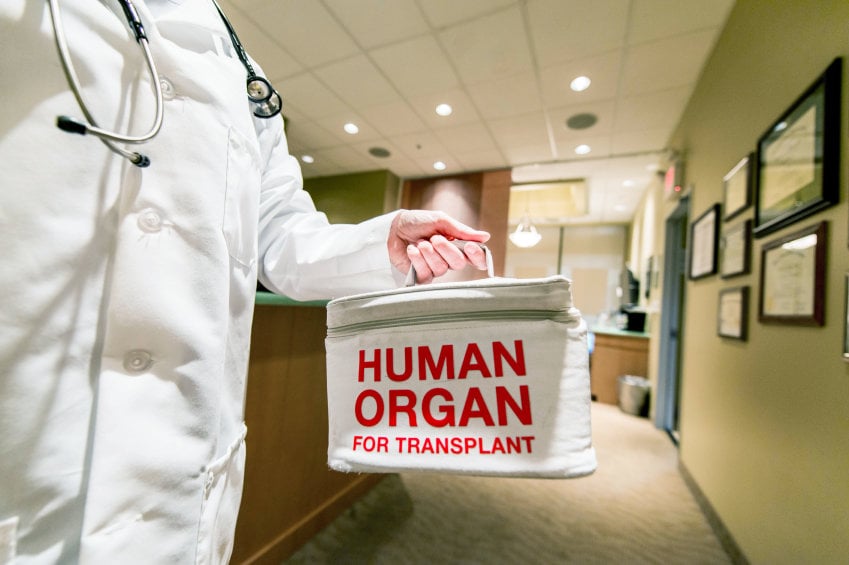Today I want to share with you my views on organ donation, in the hope that you will take them on board and give someone the ultimate gift after you have left this earth- the gift of life.
Why becoming an organ donor is so important?
The main reason to become a donor is to save others life. Once you’ve died you can help so many people continue to live and all you have to do is sign a donor card. You could save up to 50 peoples lives. There are 110 000 patients nowadays who are in waiting list for the transplant and 10 % of them are children. Unfortunately, there are just 7 000 donors per year, that means that 18 people dies each day from lack of available organs for transplantBy becoming an organ donor once you passed away you could further the lives of dozens of other people who desperately need your help. Your decision could be vital.
Which criteria have made the decision who will receive an organ?
A nonprofit organization under a contract with the U.S. Department of Health and Human Services operates a computerized national waiting list of people who need a life-saving organ transplant. This system matches each wait-listed patient against a donated organ to see which patient is the best match based on factors such as body size, weight, and blood type of the donor and recipient, how sick the patient is, how long the patient has been waiting for a transplant, and where they live in relation to the donor.
The wealth, age, race, or gender of a person on the waiting list has no effect on when a person will receive a donated organ.
When the donation occurs?
You will not receive poor medical care if you are a potential organ donor. Doctors will do anything they can to preserve a life. It is only after all efforts to resuscitate a person fail, that organ donation is even considered.
Most of the organs used in transplants come from people who have suffered brain death as the result of an accident, heart attack, or stroke. There is no oxygen or blood flow to the brain; the brain no longer functions in any manner and will never function again.
Some patients cannot be declared dead based on the definition of brain death. In these cases, the patient is declared dead upon cardiac death, which is the cessation of cardiac and respiratory function when the patient is withdrawn from life support.
Donation after cardiac death occurs only after the patient or family has decided to withdraw life-sustaining therapies for reasons entirely apart from any potential for organ donation.
Which organs and tissue could be donated and how it will help other people?
| Organ/Tissue Function | Who Will It Help |
| Heart | Patients suffering from heart disease or infants born with defective hearts. |
| Kidney | A transplant eliminates the need for dialysis. |
| Pancreas | A transplant eliminates the need for insulin injections and reduces the risk of losing sight or limbs. |
| Bone | Patients requiring facial reconstruction, limb salvage, correction of birth defects, oral surgery, or spinal surgery. |
| Skin | Patients with severe burns. Skin grafts provide a temporary bandage to decrease pain, infection, scarring and dehydration. |
Who can donate?
All people of all ages should consider themselves potential organ and tissue donors. There are few absolute exclusions (HIV positive, active cancer) and no strict upper or lower age limits. Potential donors will be evaluated for suitability when the occasion arises.
The condition of your organs is more important than age. Someone 35 years old with a history of alcohol abuse may have a liver that is in worse condition than someone 60 years old who has never consumed alcohol. In addition, people on the waiting list might need to be transplanted with an organ that is less than ideal if there is no other suitable organ available in time to save their lives. Doctors will examine your organs and determine whether they are suitable for donation if the situation arises.
How to become a donor?
To become an organ donor, the first thing you must do is register with your state donor registry. Signing up for the registry guarantee that your organ donation wishes are carried out after your death. The second step to become an organ donor is to indicate your intention on your driver’s license. If you are not renewing your driver’s license for a while yet you still wish to become an organ donor, it is suggested that you obtain and sign a donor card from the Division of transplantation, an agency of the Department of Health and Human Services. Simply carry this card with you to ensure that your wishes to become an organ donor are carried out.
Imagine your best friend or sibling, your parents or grandparents lying in a deathbed, looking for a glimmer of hope that can only be provided by another selfless person willing to donate. Imagine yourself, experiencing your last breath, all the while realizing that it only took one person to prevent your untimely departure. Think of everyone who has ever died from need of a transplant and all those who will follow in their footsteps before you decide not to sign that donor card. Most importantly, remember – Anya person can decide not to be a donor, but it takes someone with true sympathy and understanding to choose the option that makes his or her life – and death – worthwhile.




